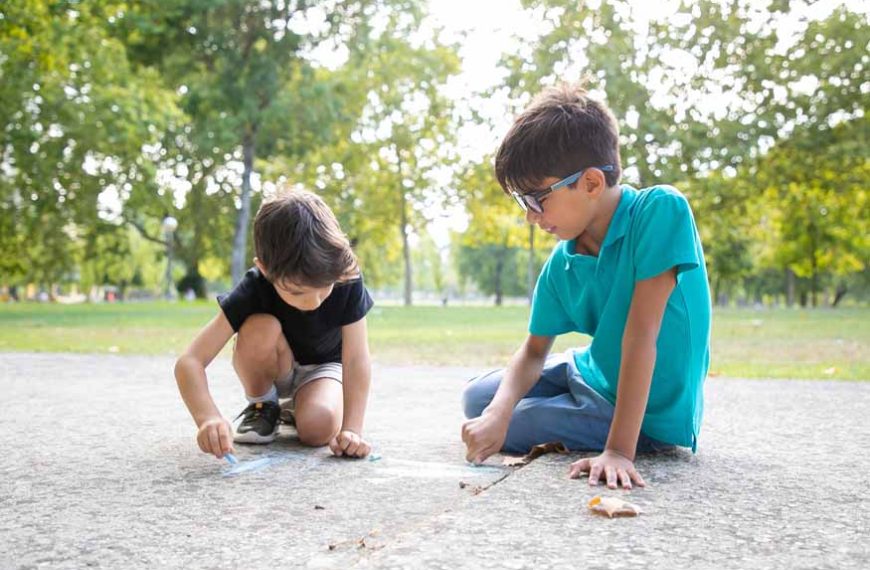As a parent, we want to raise our children to be responsible individuals and that is probably the best thing we can do for their personality. Teaching responsibility to children helps them become confident adults who can make decisions for themselves and complete tasks with minimal parental input. There is no landmark age to teach children responsibility and it can be done at any age with the right approach.
Responsibility is not learnt overnight.and you need to allow room for your child to make mistakes. Also, no child likes to do chores as a choice, so it’s natural that kids will try to avoid them. Children are responsible to the extent that adults support and expect them to be responsible. There are a few foolproof ways to teach your child about responsibility which every parent should definitely implement.
- Teach Kids to Tidy Up Their Things
- Make Them Responsible for Looking After Something
- Give Them Age-appropriate Chores
- Let Them do a Chore Without Interfering
- Introduce Chore Charts
- Introduce Pocket Money
- Teach Budgeting and Money Management
- Give Them ‘Fun’ Responsibility Too
- Make Responsibility A Routine
- Introduce Social Responsibility
- Enable Your Child to Think
- Use Repair Instead of Punishment
- Don’t Always Bail Your Child Out
- Don’t Call Your Child Irresponsible
Try to show kids the benefit of tidying their toys and room by reminding them that once everything is put in its proper place, they can find them without difficulty. Provide them with storage boxes and baskets for their toys and a time for cleaning up.
Teach them from the beginning that everyone cleans their own mess. You can begin by helping them in a cheerful and kind way. Encourage them to do it themselves even when it’s easier to do it yourself. When your kid leaves their toys scattered everywhere, give it to them and ask them to put it away. Tell them that everyone cleans up their own mess.
Making your child responsible for taking care of something is the best way to teach them about responsibility and accountability. It can be something as simple as looking after a pet or a plant. You can make them responsible for watering plants or feeding their pets.
In the case of teenagers, it is better to make them responsible for their personal items. State to them clearly that you expect them to be responsible for their pocket money and devices and doing what you have asked them to do.
Attaching consequences will help them understand responsibility better. For example, if they do not look after their phone, they will have to save their pocket money to buy a new one.
Assign age-appropriate chores to your child that teach them that they are responsible for doing their bit for the household. Set a good example by following the same behaviour yourself so they start to understand that everyone is responsible for the smooth running of the house. Chores like turning off lights when they leave their room, putting toys away after playing, laying the table, putting their clothes away, making their beds are all chores that teach kids responsibility.
When you give them a chore, avoid hovering over them or criticising their efforts. They may not always do things to your standards, but allow them to do it their way. Of course, you can call them out if they are just being lazy but have realistic expectations. Focus on the effort they put in rather than the results. Be generous with praise as it motivates them to carry on and always avoid threats as that discourages them from embracing responsibility.
Assigning chores helps kids to develop good habits and responsibility. The earlier you start, the more likely this behaviour will continue in adulthood. Clearly define the chores that your child is expected to complete.
Initially, you should always do the chores along with them or they may start finding it a drudgery. Don’t force them to do chores without you until they take pleasure in contributing and taking responsibility. Give as much support and help as you need to and make it fun for them till they start doing these tasks by themselves.
Giving pocket money helps kids learn money management and responsibility. They learn how to budget, spend wisely and become financially literate and responsible.
Teach children how to budget their money so they use some for spending and save a small amount to buy something they want or need. This way, they learn how to make their money last and use their money to get the things they need or want.
Responsibility doesn’t only have to be about dull chores, it can be for fun things too. Maybe, once a week, your child could be responsible for deciding what game to play or what to eat for dinner. Older children can be given the responsibility of planning a day out or finding the best family deal.
When responsibility is made a routine thing, it becomes second nature. You need to be clear about your expectations — school bags have to be packed the night before — helps them understand that responsibility is not negotiable.
Volunteering, fundraising and charity work are ways to teach kids about social responsibility. They also learn to value money more when they see how it can benefit others. Donating their pocket money, time or toys to good causes is a good way to start.
Ask your child to do the thinking rather than simply giving orders. Rather than barking out orders about things they need to do to get ready for school, you could ask them what is the next thing they need to do to get ready for school. The goal is to keep them focused till they begin managing their morning tasks themselves.
When your child hurts a sibling’s feelings, don’t force them to apologise as it won’t really achieve anything. First, listen to their side of the story and when they feel better, ask what they can do to make the situation better. This teaches children about responsibility for repairing a relationship they damage. But as you are not forcing them, they feel it’s their choice and so they are more likely to repeat it.
Be a support for problem-solving and in helping them to work through their feelings, but let them handle the problem themselves. This is especially true when it comes to apologising or making amends.
Never label your child as they tend to live up to those labels. Instead, equip them with the skills they need to be responsible. If your child is in the habit of losing things, teach them to go through a mental checklist of all the things that should be with them when they leave a place.
Responsibility for kids should be seen as something joyful rather than a burden. It is necessary for a child’s self-esteem and to feel like they matter and are making a positive contribution. Teaching your child responsibility takes loads of patience and encouragement and you also need to have very clear expectations. Your expectations have to be managed and just because your child doesn’t remember to do a chore that you have told them once to do, you can’t get frustrated or discouraged. For more inputs on ways to teach your child about responsibility, log into the EuroKids website.
















